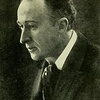
Frederick Delius Sheet Music
- Born: 29th January 1862
- Died: 10th June 1934
- Birthplace: England
Frederick Theodore Albert Delius was an English composer. Born in the north of England to a prosperous mercantile family of German extraction, he resisted attempts to recruit him to commerce. He was sent to Florida in the United States in 1884 to manage an orange plantation, where he neglected his managerial duties; influenced by African-American music, he began composing. After a brief period of formal musical study in Germany beginning in 1886, he embarked on a full-time career as a composer in Paris and then in nearby Grez-sur-Loing, where he and his wife Jelka lived (except during the First World War) for the rest of their lives. Delius's first successes came in Germany, where Hans Haym and other conductors promoted his music from the late 1890s. In Delius's native Britain, it was 1907 before his music made regular appearances in concert programmes, after Thomas Beecham took it up. Beecham staged Delius's opera A Village Romeo and Juliet at Covent Garden in 1910 and mounted a six-day Delius festival in London in 1929, as well as making gramophone recordings of many of Delius's works. After 1918 Delius began to suffer the effects of syphilis, contracted during his earlier years in Paris. He became paralysed and blind, but completed some late compositions between 1928 and 1932 with the aid of an amanuensis, Eric Fenby.